| Part of the Politics series |
| Politics |
|---|
|
|
An election commission is a body charged with overseeing the implementation of electioneering process of any country. The formal names of election commissions vary from jurisdiction to jurisdiction, and may be styled an electoral commission,[1] a central[2] or state election commission,[3] or an election board,[4] an electoral council[5] or an electoral court.[6] Election commissions can be independent, mixed, judicial or executive. They may also be responsible for electoral boundary delimitation. In federations there may be a separate body for each subnational government. An election commission has a duty to ensure elections are conducted in an orderly manner.
Electoral models
Independent model
In the independent model the election commission is independent of the executive and manages its own budget. Countries with an independent election commission include Australia, Bangladesh, Canada, India, Jordan, Nigeria, Pakistan, Poland, Romania, South Africa, South Korea, Sri Lanka, Thailand and the United Kingdom. In some of these countries the independence of the election commission is constitutionally guaranteed e.g. section 190 of the Constitution of South Africa.
Branch model
In the branch model the election commission is often called an electoral branch, and is usually a constitutionally-recognized separate branch of government, with its members appointed by either the executive or the legislative branch. Countries with an electoral branch include Bolivia, Costa Rica, Panama, Nicaragua and Venezuela.
Mixed model
In the mixed-model there is an independent board to determine policy, but implementation is usually a matter for an executive department with varying degrees of supervision by the independent board. Countries with such a model include Cameroon, France, Germany, Japan, Senegal and Spain.
Executive model
In the executive model the election commission is directed by a cabinet minister as part of the executive branch of government, and may include local government authorities acting as agents of the central body. Countries with this model include Denmark, Singapore, Sweden, Switzerland, Tunisia.
In the United States, elections for federal, state, and local offices are run by the executive branch of each state government.[7]
Judicial model
In the judicial model the election commission is closely supervised by and ultimately responsible to a special "electoral court". Countries with such a model include Argentina, Brazil and Mexico.
List of election commissions
 Afghanistan
Afghanistan
- Independent Election Commission (defunct since 2021)
- Election Complaints Commission (defunct since 2021)
 Albania: Central Election Commission
Albania: Central Election Commission Argentina
Argentina
- Dirección Nacional Electoral
- Cámara Nacional Electoral
.svg.png.webp) Australia: Australian Electoral Commission[1]
Australia: Australian Electoral Commission[1]
 Australian Capital Territory: Electoral Commission
Australian Capital Territory: Electoral Commission New South Wales: Electoral Commission
New South Wales: Electoral Commission Northern Territory: Electoral Commission
Northern Territory: Electoral Commission Queensland: Electoral Commission
Queensland: Electoral Commission South Australia: Electoral Commission
South Australia: Electoral Commission Tasmania: Electoral Commission
Tasmania: Electoral Commission.svg.png.webp) Victoria: Electoral Commission
Victoria: Electoral Commission Western Australia: Electoral Commission
Western Australia: Electoral Commission
 Bangladesh: Election Commission
Bangladesh: Election Commission Belarus: Central Election Commission
Belarus: Central Election Commission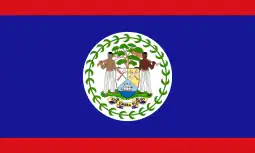 Belize: Elections and Boundaries Commission
Belize: Elections and Boundaries Commission.svg.png.webp) Bolivia
Bolivia
- Plurinational Electoral Organ (since 2010)
- National Electoral Court (defunct since 2010)
.svg.png.webp) Belgium: Federal Public Service Interior
Belgium: Federal Public Service Interior Brazil: Superior Electoral Court[6]
Brazil: Superior Electoral Court[6]
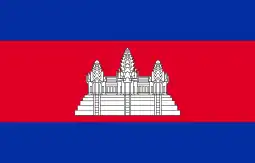 Cambodia: National Election Committee
Cambodia: National Election Committee.svg.png.webp) Canada: Elections Canada
Canada: Elections Canada
 Chile: Electoral Service
Chile: Electoral Service China (excl. Hong Kong and Macau) Election Committees for Local People's Congress elections only
China (excl. Hong Kong and Macau) Election Committees for Local People's Congress elections only Colombia: National Electoral Council
Colombia: National Electoral Council Costa Rica: Supreme Electoral Court
Costa Rica: Supreme Electoral Court Cuba: National Election Council
Cuba: National Election Council Cyprus: Central Elections Office
Cyprus: Central Elections Office Democratic Republic of the Congo: Independent National Electoral Commission
Democratic Republic of the Congo: Independent National Electoral Commission Ecuador
Ecuador
- National Electoral Council
- Electoral Contentious Tribunal
 Egypt: High Elections Committee
Egypt: High Elections Committee Ethiopia: National Election Board
Ethiopia: National Election Board Fiji: Electoral Commission
Fiji: Electoral Commission France: Constitutional Council
France: Constitutional Council Germany: Federal Returning Officer
Germany: Federal Returning Officer Ghana: Electoral Commission
Ghana: Electoral Commission Guyana: Elections Commission
Guyana: Elections Commission Haiti: Provisional Electoral Council
Haiti: Provisional Electoral Council Hong Kong: Electoral Affairs Commission
Hong Kong: Electoral Affairs Commission Iceland: National Electoral Commission
Iceland: National Electoral Commission India: Election Commission
India: Election Commission Indonesia: General Elections Commission
Indonesia: General Elections Commission Iran: Guardian Council
Iran: Guardian Council Iraq: Independent High Electoral Commission
Iraq: Independent High Electoral Commission Ireland: Electoral Commission
Ireland: Electoral Commission Israel: Central Elections Committee
Israel: Central Elections Committee Italy: Central Directorate for Electoral Services
Italy: Central Directorate for Electoral Services Japan: Central Election Management Council
Japan: Central Election Management Council Jordan: Independent Election Commission
Jordan: Independent Election Commission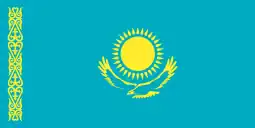 Kazakhstan: Central Election Commission
Kazakhstan: Central Election Commission Kenya
Kenya
- Interim Independent Electoral Commission (since 2008)
- Electoral Commission (defunct since 2008)
 Kosovo: Central Election Commission (Kosovo)
Kosovo: Central Election Commission (Kosovo) Laos: National Election Committee (Lao)
Laos: National Election Committee (Lao) Liberia: National Elections Commission
Liberia: National Elections Commission Libya: High National Election Commission
Libya: High National Election Commission Macau: Electoral Affairs Commission (Macau)
Macau: Electoral Affairs Commission (Macau) Malaysia: Election Commission
Malaysia: Election Commission Malta: Electoral Commission[8]
Malta: Electoral Commission[8] Mexico
Mexico
 Moldova: Central Election Commission
Moldova: Central Election Commission Myanmar Union Electoral Commission
Myanmar Union Electoral Commission Nepal: Election Commission
Nepal: Election Commission Netherlands: Electoral Council
Netherlands: Electoral Council New Zealand: Electoral Commission
New Zealand: Electoral Commission Nicaragua: Supreme Electoral Council
Nicaragua: Supreme Electoral Council Nigeria: Independent National Electoral Commission
Nigeria: Independent National Electoral Commission North Korea: Central Election Committee (North Korea)[9]
North Korea: Central Election Committee (North Korea)[9] Northern Cyprus: High Electoral Board
Northern Cyprus: High Electoral Board Norway: Norwegian Directorate of Elections
Norway: Norwegian Directorate of Elections Pakistan: Election Commission
Pakistan: Election Commission Palestine: Central Elections Commission
Palestine: Central Elections Commission Philippines: Commission on Elections
Philippines: Commission on Elections
- Once a winner is proclaimed, only these tribunals can rule on election matters
 Philippines: Presidential Electoral Tribunal (entirely composed of the Supreme Court)
Philippines: Presidential Electoral Tribunal (entirely composed of the Supreme Court)- Senate Electoral Tribunal
- House of Representatives Electoral Tribunal
- Regional Trial Courts for local officials
- Once a winner is proclaimed, only these tribunals can rule on election matters
 Poland: National Electoral Commission
Poland: National Electoral Commission Portugal: National Elections Commission (Portugal)
Portugal: National Elections Commission (Portugal) Russia: Central Election Commission
Russia: Central Election Commission Singapore: Elections Department
Singapore: Elections Department Slovenia: State Election Commission (Državna volilna komisija)
Slovenia: State Election Commission (Državna volilna komisija) Somaliland: National Electoral Commission
Somaliland: National Electoral Commission South Africa: Independent Electoral Commission
South Africa: Independent Electoral Commission South Korea: National Election Commission
South Korea: National Election Commission Spain: Junta Electoral Central
Spain: Junta Electoral Central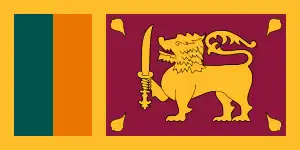 Sri Lanka: Election Commission of Sri Lanka
Sri Lanka: Election Commission of Sri Lanka Sweden: Election Authority
Sweden: Election Authority Taiwan: Central Election Commission
Taiwan: Central Election Commission Tanzania: National Electoral Commission
Tanzania: National Electoral Commission Thailand: Election Commission
Thailand: Election Commission Tunisia: Independent High Authority for Elections
Tunisia: Independent High Authority for Elections Turkey: Supreme Electoral Council of Turkey[5]
Turkey: Supreme Electoral Council of Turkey[5] Ukraine: Central Election Commission
Ukraine: Central Election Commission United Kingdom: Electoral Commission
United Kingdom: Electoral Commission United States
United States
- Election Assistance Commission, serves as a national clearinghouse and resource regarding election administration, establishes best practices, and provides financial aid to state electoral systems.
- Federal Election Commission, regulates campaign finance legislation
- Electoral Commission, a special commission for the 1876 presidential election
 Florida: Florida Election Commission
Florida: Florida Election Commission Hawaii: Hawaii Elections Commission[10]
Hawaii: Hawaii Elections Commission[10]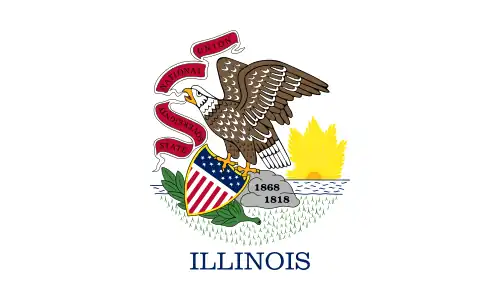 Illinois: Illinois State Board of Elections[11]
Illinois: Illinois State Board of Elections[11] Maryland: Maryland State Board of Elections[12]
Maryland: Maryland State Board of Elections[12] New York: New York State Board of Elections[13]
New York: New York State Board of Elections[13] North Carolina: North Carolina State Board of Elections & Ethics Enforcement[14]
North Carolina: North Carolina State Board of Elections & Ethics Enforcement[14] Oklahoma: Oklahoma State Election Board[4]
Oklahoma: Oklahoma State Election Board[4] Puerto Rico: State Elections Commission
Puerto Rico: State Elections Commission South Carolina: South Carolina State Election Commission[3]
South Carolina: South Carolina State Election Commission[3] Virginia: Virginia State Board of Elections[15]
Virginia: Virginia State Board of Elections[15] Wisconsin: Wisconsin Elections Commission[16]
Wisconsin: Wisconsin Elections Commission[16]
 Uruguay: Electoral Court
Uruguay: Electoral Court Venezuela: National Electoral Council
Venezuela: National Electoral Council Vietnam: National Election Council (Vietnam)
Vietnam: National Election Council (Vietnam)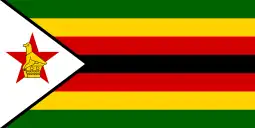 Zimbabwe: Electoral Commission
Zimbabwe: Electoral Commission
Election commissions in Africa
As of 2021, 53 out of 55 African nations (save for Eritrea and Somalia, which do not hold elections) use or have used election commissions to organize and supervise their elections. First introduced in the Sudan in 1957, election commissions were created across the continent especially after many African nations introduced a system of multi-party democracy in the early 1990s.[17]
See also
- Electoral college, a body which elects a candidate to a particular office.
- Association of Central and Eastern European Election Officials
- Association of African Election Authorities
- Court of Disputed Returns
References
- 1 2 "Australian Electoral Commission". Retrieved December 15, 2018.
- ↑ Alvarez-Rivera, Manuel. "Elections to the Latvian Saeima (Parliament)". Election Resources on the Internet. Retrieved December 15, 2018.
- 1 2 "Home". SC Votes - South Carolina Election Commission. Retrieved 2023-12-07.
- 1 2 "Oklahoma State Election Board". Retrieved December 15, 2018.
- 1 2 "YSK Web Portal". www.ysk.gov.tr. Retrieved 2023-12-07.
- 1 2 "Superior Electoral Court, Brazil (TSE)". Archived from the original on November 16, 2020. Retrieved December 15, 2018.
- ↑ "About Us". Florida Division of Elections. Florida Department of State. Retrieved 13 February 2017.
- ↑ "Electoral Commission of Malta Welcome to the portal of the Electoral Commission of Malta". electoral.gov.mt. Retrieved 2023-12-07.
- ↑ "Report of Central Election Committee in DPRK Issued". dprktoday.com. Retrieved 2023-12-07.
- ↑ "State of Hawaii Office of Elections". Elections Commission. Retrieved 7 December 2023.
- ↑ "Board of Elections". Illinois State Board of Elections. Retrieved 7 December 2023.
- ↑ "Maryland State Board of Elections". elections.maryland.gov. Retrieved 2023-12-07.
- ↑ "Board of Elections". New York State Board of Elections. Retrieved 7 December 2023.
- ↑ "Home Page | NCSBE". North Carolina State Board of Elections. Retrieved 2023-12-07.
- ↑ "Virginia Department of Elections - Home". www.elections.virginia.gov. Retrieved 2023-12-07.
- ↑ "Wisconsin Elections Commission". elections.wi.gov. 2022-04-04. Retrieved 2023-12-07.
- ↑ Marzin, Régis (2021). Les commissions électorales et le retour du multipartisme entre 1990 et 1994 en Afrique, Historique des commissions électorales de 1957 à 2021 (in French).